WORLD
Ramaphosa Sworn In for Second Term as South Africa’s President
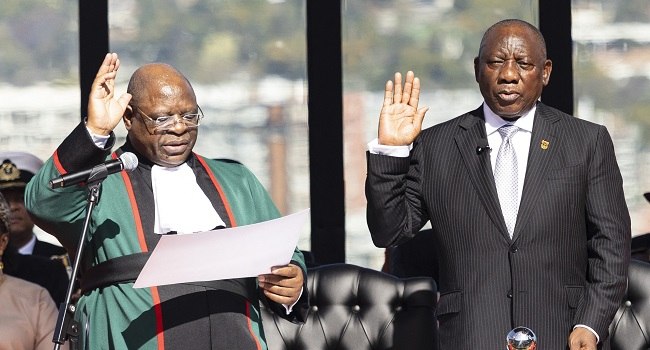
South Africa’s Cyril Ramaphosa was sworn in for a second full term as president in Pretoria on Wednesday, following a coalition deal by his weakened African National Congress (ANC).
Chief Justice Raymond Zondo administered Ramaphosa’s oath of office before lawmakers, foreign dignitaries, religious and traditional leaders, and cheering supporters at the Union Buildings, the seat of government.
“In the presence of everyone assembled here, and in full realization of the high calling I assume as President… I, Matamela Cyril Ramaphosa, swear that I will be faithful to the Republic of South Africa,” Ramaphosa declared.
Lawmakers overwhelmingly re-elected the 71-year-old last week, following a general election on May 29 that produced no outright winner.
Numerous heads of state, including Nigerian President Bola Ahmed Tinubu, Angola’s Joao Lourenco, Congo Brazzaville’s Denis Sassou Nguesso, and Eswatini’s King Mswati III, attended the inauguration.
Guests, dressed in suits and fancy attire to stay warm in the chilly winter weather, began arriving early in the morning amid a heavy police presence. VIPs, some singing anti-apartheid struggle songs, were admitted to a small amphitheater within the imposing sandstone government building. Other attendees, some waving South African flags, sat on a lawn outside as dancers and musicians performed on a big stage.
Following Ramaphosa’s oath, a band played the national anthem, accompanied by a 21-gun salute and a flyover by army helicopters towing large South African flags.
It was the third time Ramaphosa took the oath. The former trade unionist turned millionaire businessman first assumed power in 2018 after his predecessor, Jacob Zuma, was ousted under a cloud of corruption allegations. Ramaphosa was re-appointed for a full five-year term in 2019. In South Africa, voters elect the parliament, which then elects the president.
Ramaphosa promised a new dawn for South Africa, launched an anti-graft drive, and began reforming a collapsing energy system. However, under his leadership, the economy struggled, power cuts persisted, crime remained rampant, and unemployment rose to 32.9 percent.
In May, he led the ANC into another vote, but the party, historically associated with Nelson Mandela, was significantly weakened, winning only 40 percent of the vote, down from 57.5 percent five years earlier. For the first time since the advent of democracy in 1994, the ANC lost its absolute majority in parliament and had to form a coalition to stay in power.
The ANC agreed to form a national unity government with several other parties, including the center-right Democratic Alliance (DA), the Zulu nationalist Inkatha Freedom Party, the anti-immigration Patriotic Alliance, and the small center-left GOOD party. This coalition enabled Ramaphosa to fend off a last-minute challenge by firebrand leftist politician Julius Malema, securing 283 votes in the 400-seat National Assembly.
However, the coalition faced strong opposition from the left. Malema’s Economic Freedom Fighters and former president Zuma’s uMkhonto weSizwe (MK) refused to participate and criticized the inclusion of right-wing parties and the white-led, free-market DA. MK, which came third in the election, has contested the results. Party spokesman Nhlamulo Ndhlela stated that its lawmakers would snub the “farcical inauguration of Cyril Ramaphosa as the puppet DA-sponsored President,” using a racial slur to describe the ANC leader.
Ramaphosa is expected to announce his cabinet within days of his inauguration, as talks with coalition members continue.
FOLLOW US


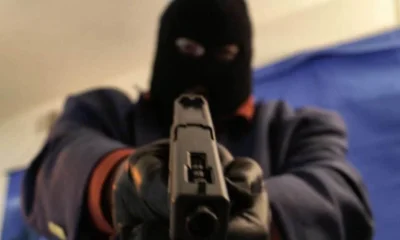



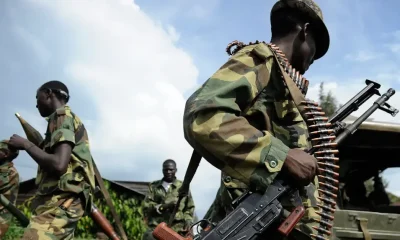

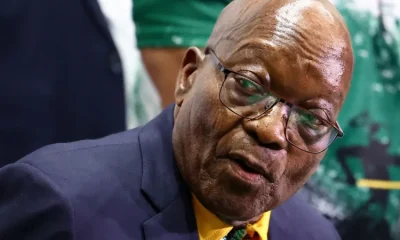



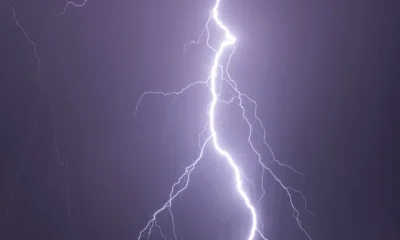




![Top Nigeria Newspaper Headlines Today 25th June 2024 [Tuesday] 87 Nigeria Newspaper Headlines](https://nigerianews247.com/wp-content/uploads/2024/04/Nigeria-Newspaper-Headlines-80x80.png)

![[VIDEO] Tinubu Stumbles while Boarding Presidential Parade Vehicle at Eagles Square 90 Tinubu Stumbles while Boarding Presidential Parade Vehicle at Eagles Square](https://nigerianews247.com/wp-content/uploads/2024/06/Tinubu-Stumbles-while-Boarding-Presidential-Parade-Vehicle-at-Eagles-Square-80x80.jpeg)


You must be logged in to post a comment Login